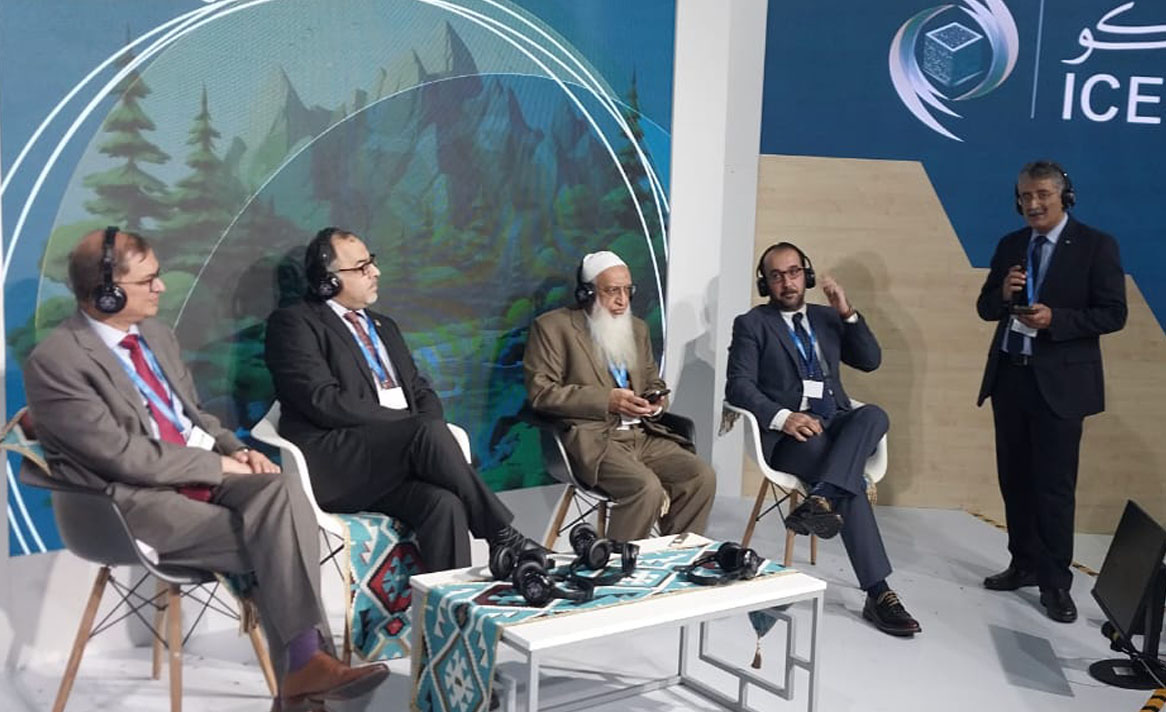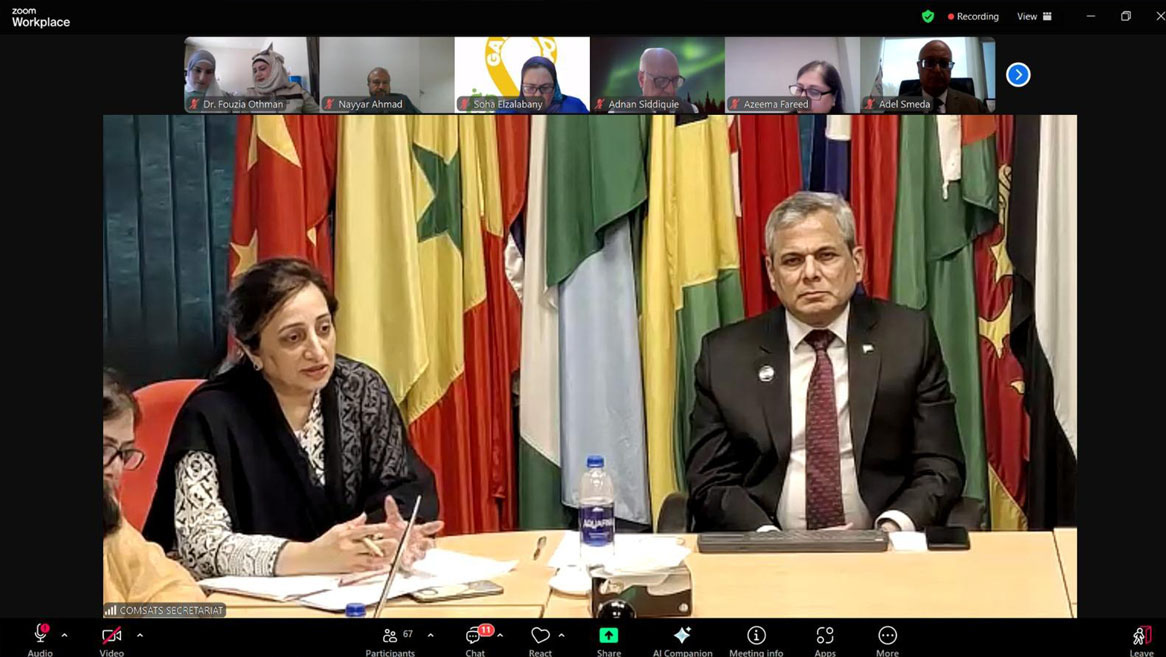In collaboration with the Sustainable Development Policy Institute (SDPI) and the Ministry of Climate Change and Environmental Coordination (MoCC&EC), Government of Pakistan, COMSATS co-organized a panel discussion titled “Towards More Resilient Food Systems: Sustainable Food Systems, Supply Chains, and Nutritious Food” at the Pakistan Pavilion. Experts and policymakers convened to discuss the pressing challenges and actionable strategies for fostering climate-resilient food systems in Pakistan.
The session began with Dr. Abid Qaiyum Suleri, Executive Director of SDPI, who stressed the critical role of resilient food systems in bolstering Pakistan’s overall climate resilience. He highlighted the importance of empowering subnational governments, particularly local leaders, to address food security and integrate climate action into regional frameworks. Dr. Suleri underscored the untapped potential of Balochistan, with its rich coastlines and fertile plains.
Nadeem ur Rehman, Secretary of Climate Change, highlighted Pakistan’s paradoxical position as one of the most climate-vulnerable nations despite contributing minimally to global emissions. He pointed out that Balochistan, while heavily affected by climate-induced disasters, offers immense agricultural potential due to its diverse agro-ecological zones and natural resources, including river basins and irrigation systems. However, he emphasized the underutilization of arable land and discussed efforts such as the plantation of 10 million olive saplings to harness the region’s agricultural capabilities.
Addressing the issue of malnutrition, Bilal Anwar, CEO of the National Disaster Risk Management Fund (NDRMF), drew attention to the 48% malnourishment rate among children in Pakistan. He emphasized the critical link between water management, food production, and disaster risk reduction, particularly in drought-prone regions like Sindh. Anwar highlighted NDRMF’s commitment to integrating nutrition-focused strategies into disaster response planning.
Bilal Azhar Kayani, Member of the National Assembly and Convener of the SDGs Parliamentary Taskforce, stressed the need for stronger legislative and parliamentary advocacy to advance climate-resilient food systems. He discussed the challenges of transitioning hard-to-abate sectors, such as agriculture, toward sustainable practices and called for expert-led strategies to drive this transformation.
On an international front, Dr. Saul Morris, Director of GAIN, emphasized the importance of improving nutrition for vulnerable populations. Drawing from GAIN’s work in food systems policy development in Pakistan, he discussed the impact of rising carbon emissions and heat on nutrient loss and called for robust interventions to combat these challenges.

Dr. Minhaj Khokhar, an ecosystem and food specialist, proposed innovative farming techniques such as vertical gardening, regenerative agriculture, and organic meat production to reduce reliance on chemicals and improve yields. He advocated for inclusive farming practices as a pathway to long-term food security.
Focusing on global food security challenges, Dr. Khalid Mahmood, CEO of SAWiE, emphasized the need to adopt sustainable agricultural practices to address the challenge of feeding a projected global population of 10 billion by 2050. He highlighted the potential of regenerative agriculture, particularly in Balochistan, to deliver both environmental and economic benefits to small-scale farmers.
Representing the private sector, Khurram Shah of PepsiCo shared insights on the company’s initiatives in Pakistan, where they collaborate with over 30,000 farmers. He outlined PepsiCo’s efforts in promoting soil health, water conservation, and resilient seed varieties to empower farmers in adopting sustainable agricultural methods.
Niaz Khan Kakar, Project Director of Upscaling Green Pakistan, emphasized the importance of preserving native plant species in Balochistan, a region known for its rich biodiversity. He cautioned against the promotion of exotic species and advocated for policies supporting ecosystem conservation.
The session concluded with Naseem ur Rehman, Advisor to the Government of Balochistan, who reiterated the province’s vulnerability to climate-induced disasters despite its vast resources. He expressed gratitude for international support and reaffirmed Balochistan’s commitment to climate resilience. He also emphasized the importance of global platforms like COP29 in raising awareness and fostering collaborative action.
This impactful discussion brought together key stakeholders from government, international organizations, academia, the private sector, and local communities. It underscored the need for coordinated efforts at all levels to build sustainable and climate-resilient food systems, ensuring a secure and nutritious future for Pakistan amidst the growing threats of climate change.





